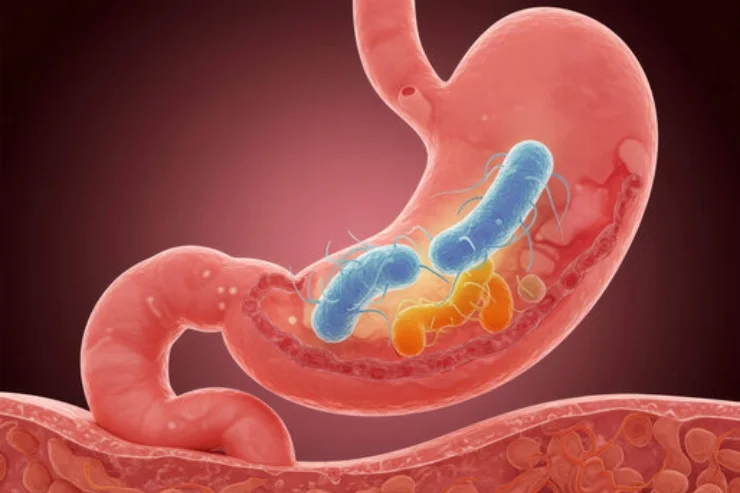
Helicobacter pylori (H. pylori) is a spiral-shaped bacterium that colonizes the stomach lining, potentially leading to various gastrointestinal conditions. While some individuals remain asymptomatic, an H. pylori infection can contribute to gastritis, peptic ulcers, and, in severe cases, an increased risk of gastric cancer. Common symptoms include abdominal discomfort, bloating, nausea, and indigestion.
Functional Medicine focuses on identifying and addressing the underlying causes of health conditions rather than simply treating symptoms. This patient-centered approach integrates advanced testing, personalized treatment plans, and holistic therapies to restore optimal gut health.
Accurate diagnosis is essential for effective treatment. A range of advanced testing methods is used to detect H. pylori infections and assess overall gut health, including:
✔ Urea Breath Test – Measures exhaled carbon dioxide after ingesting a urea solution to confirm the presence of H. pylori.
✔ Stool Antigen Test – Identifies H. pylori antigens in stool samples, indicating active infection.
✔ Comprehensive Stool Analysis – Assesses bacterial imbalances, inflammation markers, and digestive function to provide a holistic view of gut health.
Since each individual’s gut health is unique, treatment strategies are tailored accordingly. A combination of conventional and natural therapies is used to maximize effectiveness while minimizing side effects. Key components of the approach include:
✔ Targeted Antimicrobial Therapy – Specific antibiotics are selected based on sensitivity testing to effectively eliminate H. pylori.
✔ Probiotic Supplementation – Beneficial bacteria are introduced to restore gut flora balance, supporting digestion and reducing treatment side effects.
✔ Nutritional Support – A diet rich in fiber, antioxidants, and flavonoids is encouraged to promote stomach lining repair and reduce inflammation.
✔ Herbal Remedies – Natural compounds such as mastic gum, berberine, and zinc carnosine are incorporated for their antimicrobial and mucosal-healing properties.
Beyond eliminating H. pylori, the focus is on restoring and maintaining long-term gut health. This is achieved through:
✔ Gut Lining Repair – Supplements such as L-glutamine, collagen, and aloe vera extract are used to support the healing of the stomach lining.
✔ Microbiome Rebalancing – Probiotics and prebiotics help restore beneficial gut bacteria and prevent reinfection.
✔ Anti-Inflammatory Diet – Nutrient-dense foods like turmeric, ginger, and leafy greens support digestive balance and reduce inflammation.
✔ Lifestyle Modifications – Stress management techniques, proper hydration, and improved sleep habits are encouraged to maintain digestive health.
By addressing the root causes and providing a structured, Functional Medicine-based approach, individuals can achieve long-term relief from H. pylori-related digestive issues while enhancing overall well-being.